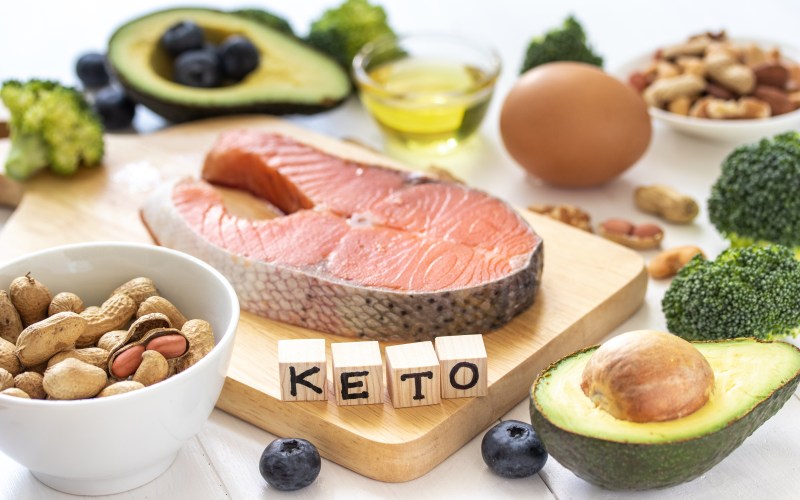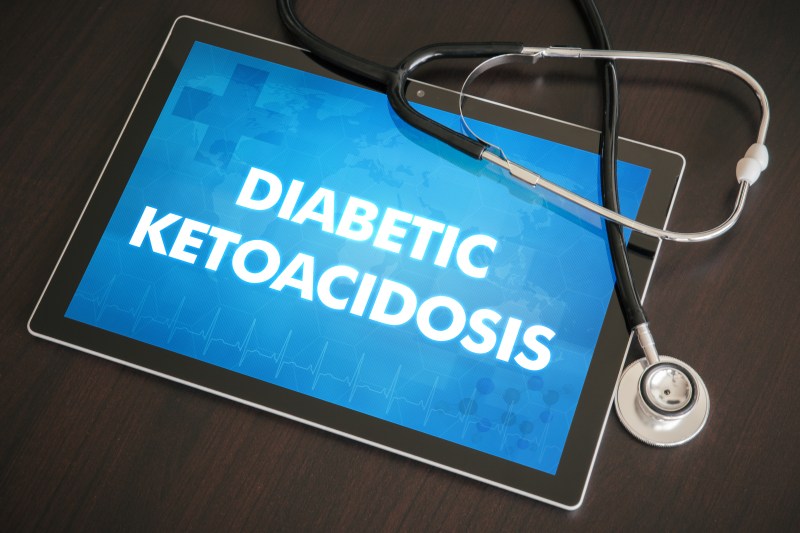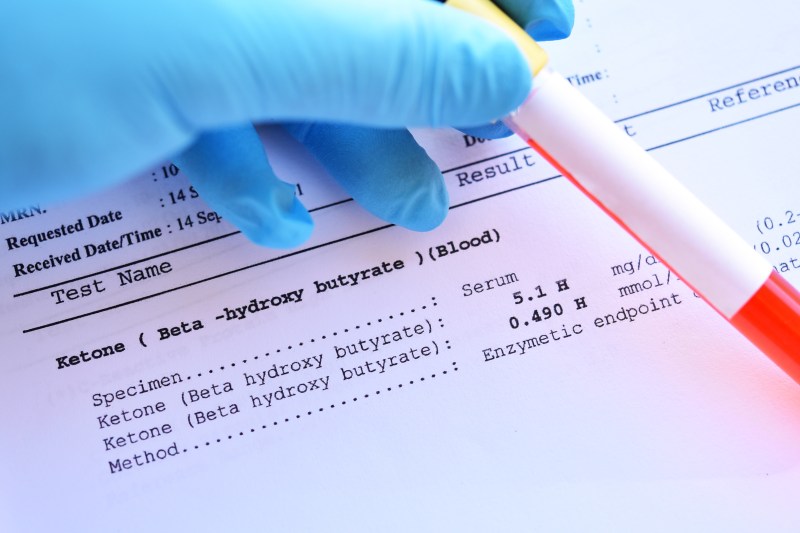At a glance
Ketones are a natural fuel the body produces when carbohydrate intake is low, and they’re safe when maintained within normal ranges. Although they are acidic, ketones are not inherently poisonous, and harmful shifts in blood pH occur only under specific medical conditions, not during nutritional ketosis, which can support steady energy and broader metabolic benefits.
Are ketones poisons, or are they simply a by-product of the liver producing them from fat to generate energy for the cells?
Ketones aren’t dangerous if kept within healthy ranges. However, excessive ketone levels in the blood can acidify its pH, which can lead to life-threatening complications.
Discover why ketones triggered by a ketogenic diet don’t pose health risks and how maintaining balanced levels can support your metabolic health without adverse effects.
Are ketones poisons?
Ketones, or ketone bodies, are acids produced by the liver when fat is broken down to generate energy.
Ketones are released when the body enters a state of ketosis, which occurs when carbohydrate intake is reduced, prompting the body to switch from using glucose as its primary energy source to using fat-derived ketones.
They aren’t poisons and serve as an alternative fuel source for cells when glucose is limited, such as during periods of fasting or when following a low-carb ketogenic diet.
However, when ketones accumulate excessively in the blood, they can acidify its pH, leading to a condition known as ketoacidosis.
Unlike nutritional ketosis, which is a controlled and safe metabolic state, ketoacidosis arises from impaired insulin release and uncontrolled blood glucose levels, typically affecting individuals with type 1 diabetes.
Watch the video below to learn more about the difference between ketosis and ketoacidosis.
Ketosis vs. ketoacidosis
Typically, blood sugar derived from dietary carbohydrates is the body’s primary fuel source. However, during ketosis, the body breaks down fat instead of using blood glucose to generate energy.
Nutritional ketosis can be achieved by restricting carb intake to less than 50 grams daily. This pushes the liver to burn fat, which releases ketones. Once ketone bodies enter the bloodstream and start to fuel cells, the body enters ketosis.
Ketosis is a natural metabolic state that’s not only safe but has also been linked to various health benefits, including weight loss, improved metabolic health, and enhanced cognitive functions.
Contrarily, ketoacidosis is a serious and potentially life-threatening diabetic complication resulting from insulin deficiency. This rare condition typically affects individuals with type 1 diabetes and is often caused by missed insulin therapy doses or insulin pump failure.
Lack of insulin can cause dangerously high blood sugar levels that can’t enter cells to be used as fuel. This triggers a rapid breakdown of fat to provide an alternative energy source, causing the release of large amounts of high ketones.
Due to their acidic properties, excess ketones can alter the blood’s pH, which can lead to impaired cellular function, respiratory issues, impaired heartbeat regulation, and organ failure.
Research published in StatPearls found that “Nutritional ketosis is generally considered safe since it involves the production of ketone bodies in moderate concentrations without significantly impacting blood pH. Nutritional ketosis differs from ketoacidosis, a severe and life-threatening condition characterized by excessively high levels of ketone bodies, leading to acidosis in the blood.”1
While ketoacidosis is primarily diagnosed in type 1 diabetics, those with type 2 diabetes are also at risk when insulin doses are missed or insulin requirements are incorrectly calculated.

Benefits of ketones
Ketogenic diets are recognized for various impressive health benefits, including enhanced metabolism, improved cognitive function, strengthened immunity, and more balanced inflammatory responses.
Here are four incredible benefits of ketones.
1. Reduced appetite
Ketones may help reduce appetite by suppressing ghrelin, a hunger-stimulating hormone released by the stomach when empty.
A study published in Obesity found that increased blood ketone levels directly suppressed appetite and feelings of hunger after an overnight fast.2
A reduced appetite can enhance weight loss by diminishing hunger signals, thereby maximizing the weight-loss effects of ketosis, which naturally promotes fat-burning.
2. Steady energy source
High-carb diets cause substantial blood sugar fluctuations. Constant spikes and dips in blood sugar levels disrupt cellular energy-making processes and can lead to mood swings and fatigue throughout the day.
Ketones provide the body with a steady alternative fuel source, stabilizing energy levels and promoting sustained mental and physical performance.
Additionally, ketones are more efficient at producing adenosine triphosphate (ATP), the body’s energy currency. More ATP is produced per molecule with ketones than glucose, making it a superior fuel source that enhances overall energy efficiency and cellular function.

3. Potential anti-cancer effects
Cancer cells utilize glucose to metastasize and typically can’t use fat as an energy source, which explains why ketones may help lower the risk of certain cancers.
A ketogenic diet limits sugar and carbohydrate intake, thereby reducing available glucose for cancer cells and potentially slowing or preventing tumor growth.
A study published in the International Journal of Cancer found that ketone supplementation decreased cancer cell proliferation and viability. The researchers also found that carbohydrate restriction helped slow cancer progression in animal models.3
4. Anti-inflammatory properties
Inducing ketosis may help alleviate symptoms associated with chronic inflammatory conditions, such as rheumatoid arthritis and autoimmune diseases.
This is likely due to beta-hydroxybutyrate, a primary ketone body that has been found to block immune system receptors that promote inflammation and pain.

Tips for healthy ketone production
Conditions such as alcoholism, eating disorders, and diabetes can trigger excessive ketone release, which may lead to severe complications and even death.
However, there are several methods for healthy ketone production, including dietary and lifestyle changes.
Following a Healthy Keto® diet and an intermittent fasting plan are efficient and safe ways to enter ketosis and trigger ketone release.
A ketogenic diet is a high-fat, moderate-protein diet that limits carbohydrate intake to push the body into ketosis.
Intermittent fasting involves cycling between periods of eating and fasting, which augments the metabolic benefits of ketosis by enhancing fat-burning and ketone production.
Prolonged intense exercise, especially cardio and strength training, can also help you switch to ketosis faster by depleting glycogen, a storage form of glucose, in muscles and liver cells.
Additionally, reducing stress and prioritizing sleep can enhance ketone production. “Stress activates cortisol, a stress hormone that can raise blood sugar levels and keep ketone levels to a minimum,” explains Dr. Berg.
Incorporating medium-chain triglycerides (MCTs) into your diet, such as by consuming MCT oil in coffee, can also be beneficial. MCTs are readily absorbed and rapidly converted into ketones, which promotes ketosis and fat-burning.

When are ketones dangerous?
Ketosis is safe when achieved with a whole food-based ketogenic diet and intermittent fasting plan.
However, certain conditions, including starvation, alcoholism, and diabetes mellitus, can produce excess blood acids and lead to ketoacidosis, a dangerous and sometimes fatal medical emergency.
Starvation ketoacidosis (SKA) occurs with prolonged glucose deprivation, such as from eating disorders like anorexia. When the body is starving, fat and muscle are broken down at an accelerated rate, causing high ketone concentrations.
Alcoholic ketoacidosis (AKA) is diagnosed in those who abuse alcohol. Those affected by AKA are often malnourished, which leads to the onset of ketoacidosis as the body struggles to maintain proper metabolic balance.
Diabetic ketoacidosis (DKA) results from insulin deficiency, primarily affecting type 1 diabetics. DKA is often the first sign of diabetes for patients who were formerly undiagnosed.

Testing for high ketone levels
Urine and blood ketone tests can help monitor levels of ketones in the body. While urine tests are available over the counter and can be performed at home, blood tests are more accurate but require a visit to the doctor.
Here are the urine and serum ketone ranges measured in millimoles per liter (mmol/L).
Urinary ketone concentrations:
- Normal: < 0.6 mmol/L
- Keto dieters: Between 0.6 and 3 mmol/L
- Risk of ketoacidosis: Between 3 and 9 mmol/L
- Ketoacidosis: > 10 mmol/L
Blood ketone concentrations:
- Normal: < 0.6 mmol/L
- Keto dieters: Between 0.6 and 1.5 mmol/L
- Risk of ketoacidosis: Between 1.5 and 3 mmol/L
- Ketoacidosis: > 3 mmol/L
Blood or urine levels that indicate an increased risk of ketoacidosis require immediate medical attention.
If you’re diabetic and concerned about ketoacidosis, regularly monitor your glucose and ketone levels and consider starting a nutritious low-carb diet such as Healthy Keto.
Following a low-carb diabetes nutrition plan can help reduce the risk of ketoacidosis. However, consult your diabetes care team before making dietary changes, as your insulin dosage may need to be adjusted.
Key takeaways
- Are ketones poisons? No. Ketones are natural by-products of fat metabolism and are usually safe when produced during fasting or a Healthy Keto diet. They become dangerous only when they accumulate excessively, which is typically a result of certain medical conditions.
- Nutritional ketosis supports fat burning, steadier energy, reduced appetite, and promotes balanced inflammatory responses, as well as more stable metabolic function.
- Ketoacidosis is a rare but serious condition caused by uncontrolled ketone buildup, most commonly linked to type 1 diabetes, starvation, or chronic alcoholism.
- Monitoring ketones with urine, breath, or blood tests can help distinguish normal nutritional ketosis from abnormally high levels that require medical attention.
FAQ
1. Are ketones poisons?
No, ketones aren’t poisons. Ketone bodies are a by-product of fat-burning, triggered by dietary restriction of carbohydrates and fasting.
Ketones generated during nutritional ketosis are safe and can help improve cognitive function and mood regulation, help reduce appetite, and may have anti-cancer properties.
2. Can ketone bodies be toxic?
Yes, ketone bodies can be toxic. Excessive levels of ketone concentrations can make blood acidic, which disrupts normal physiological processes and can lead to serious health complications, including cerebral edema, coma, and even death.
This is a potentially life-threatening condition known as ketoacidosis, most commonly diagnosed in type 1 diabetics who missed an insulin dose or didn’t administer enough insulin to maintain blood sugar level control.
3. What is ketone poisoning?
Ketone poisoning, or ketoacidosis, is a condition observed in individuals who are starving, malnourished, or have diabetes or chronic alcoholism. These conditions lead to insulin dysfunction, elevated blood glucose levels, and an excessive buildup of ketone bodies, which acidify the blood.
4. How common is ketoacidosis?
Approximately three percent of individuals with type 1 diabetes are initially diagnosed with diabetic ketoacidosis (DKA). DKA is most common in women and results in death in about two percent of cases.
Alcoholic ketoacidosis is typically observed in individuals who chronically abuse alcohol rather than those who binge drink. Starvation ketoacidosis, which is uncommon in the U.S., occurs in individuals who are severely malnourished or have eating disorders such as anorexia.
5. Is ketosis healthy?
Yes, ketosis can be healthy when achieved through a nutritious Healthy Keto® diet. This metabolic state has been linked to various health benefits, including enhanced cognitive function, balanced inflammatory responses, and improved metabolic health.
Sources
- https://www.ncbi.nlm.nih.gov/books/NBK499830/ ?
- https://www.ncbi.nlm.nih.gov/pmc/articles/PMC5813183/ ?
- https://www.ncbi.nlm.nih.gov/pmc/articles/PMC4235292/ ?


















